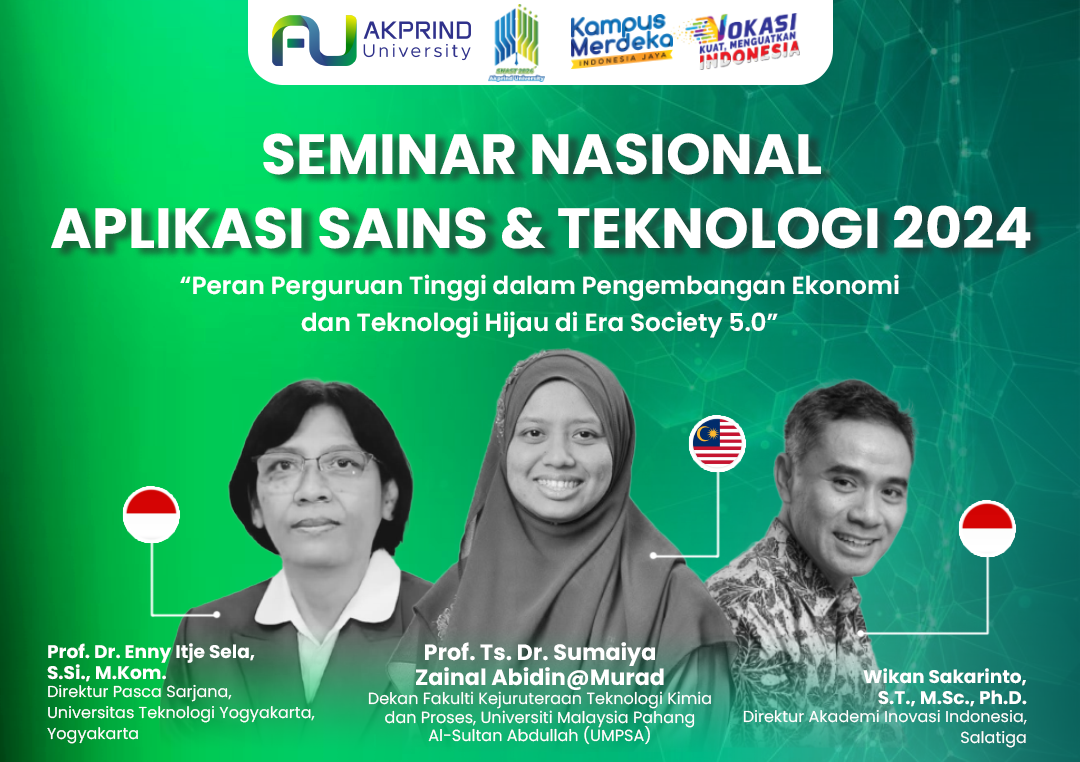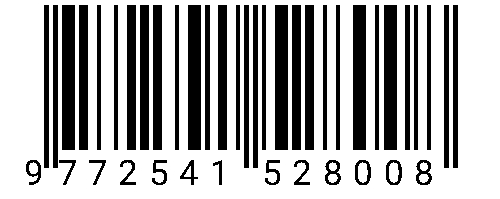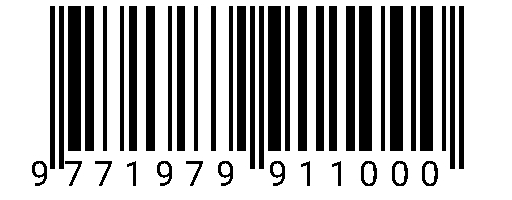PENGEMBANGAN EKONOMI HIJAU DI ERA SOCIETY 5.0: KOLABORASI TEKNOLOGI DAN LINGKUNGAN UNTUK MASA DEPAN
DOI:
https://doi.org/10.34151/prosidingsnast.v1i1.4909Keywords:
Global environmental crisis, Green economy, Society 5.0 technologies, Sustainable economic modelsAbstract
The intensifying global environmental crisis, driven by climate change, pollution, and resource depletion, necessitates a shift towards sustainable economic models. The green economy, which emphasizes resource efficiency, renewable energy, and ecosystem protection, offers a framework for achieving sustainable growth. However, the transition to a green economy requires substantial technological innovation and a coordinated effort across multiple sectors. Society 5.0, a concept pioneered in Japan, integrates advanced technologies such as the Internet of Things (IoT), Artificial Intelligence (AI), and big data to address pressing social and environmental issues. Unlike previous industrial models, Society 5.0 aims to balance economic growth with social well-being and environmental stewardship. This study explores how Society 5.0 can accelerate the green economy by fostering a synergy between technology and environmental practices. Utilizing a qualitative descriptive approach and analyzing secondary data from industry reports and academic literature, the research examines the contributions of Society 5.0 technologies in supporting sustainable practices. Findings reveal that these technologies enable efficient resource management, lower carbon emissions, and improve waste management processes. However, significant challenges remain, including high initial costs, limited infrastructure, and resistance to change. The study concludes that collaborative efforts among governments, industries, and communities are essential for overcoming these obstacles, facilitating a smoother transition towards a sustainable green economy that harmonizes technological advancement with environmental protection.
References
Fujii, T., Guo, T. B., & Kamoshida, A. (2020). A consideration of service strategy of japanese electric manufacturers to realize super smart society (SOCIETY 5.0). Communications in Computer and Information Science, 877, 634–645. https://doi.org/10.1007/978-3-319-95204-8_53
Hansen, S. T., & Moe, E. (2022). Renewable energy expansion or the preservation of national energy sovereignty? Norwegian renewable energy policy meets resource nationalism. Political Geography, 99(October), 102760. https://doi.org/10.1016/j.polgeo.2022.102760
Hickel, J., & Kallis, G. (2020). Is Green Growth Possible? New Political Economy, 25(4), 469–486. https://doi.org/10.1080/13563467.2019.1598964
Holzinger, A., Fister, I., Fister, I., Kaul, H. P., & Asseng, S. (2024). Human-Centered AI in Smart Farming: Toward Agriculture 5.0. IEEE Access, 12(May), 62199–62214. https://doi.org/10.1109/ACCESS.2024.3395532
Mikhno, I., Koval, V., Shvets, G., Garmatiuk, O., & Tamošiūnienė, R. (2021). Green Economy In Sustainable Development And Improvement Of Resource Efficiency. Central European Business Review, 10(1), 99–113. https://doi.org/10.18267/j.cebr.252
Motlagh, N. H., Mohammadrezaei, M., Hunt, J., & Zakeri, B. (2020). Internet of things (IoT) and the energy sector. Energies, 13(2), 1–27. https://doi.org/10.3390/en13020494
Mourtzis, D., Angelopoulos, J., & Panopoulos, N. (2022). Smart Grids as product-service systems in the framework of energy 5.0 - a state-of-the-art review. Green Manufacturing Open, 1(1), 5. https://doi.org/10.20517/gmo.2022.12
Naor, M., Coman, A., & Wiznizer, A. (2021). Vertically integrated supply chain of batteries, electric vehicles, and charging infrastructure: A review of three milestone projects from theory of constraints perspective. Sustainability (Switzerland), 13(7). https://doi.org/10.3390/su13073632
Nikitas, A., Michalakopoulou, K., Njoya, E. T., & Karampatzakis, D. (2020). Artificial intelligence, transport and the smart city: Definitions and dimensions of a new mobility era. Sustainability (Switzerland), 12(7), 1–19. https://doi.org/10.3390/su12072789
Saniuk, S., Grabowska, S., & Straka, M. (2022). Identification of Social and Economic Expectations: Contextual Reasons for the Transformation Process of Industry 4.0 into the Industry 5.0 Concept. Sustainability (Switzerland), 14(3). https://doi.org/10.3390/su14031391
Yang, M., Chen, L., Wang, J., Msigwa, G., Osman, A. I., Fawzy, S., Rooney, D. W., & Yap, P. S. (2023). Circular economy strategies for combating climate change and other environmental issues. Environmental Chemistry Letters, 21(1), 55–80. https://doi.org/10.1007/s10311-022-01499-6
Downloads
Published
Issue
Section
License
Copyright (c) 2024 Aloysius Agus Subagyo

This work is licensed under a Creative Commons Attribution-ShareAlike 4.0 International License.







